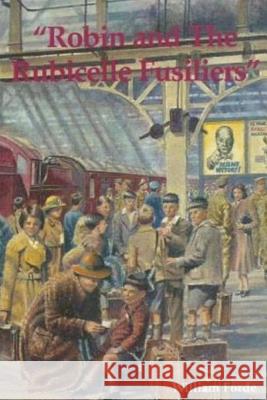Robin and The Rubicelle Fusiliers » książka
Robin and The Rubicelle Fusiliers
ISBN-13: 9781502994950 / Angielski / Miękka / 2014 / 180 str.
This author's works have been praised by numerous celebrities, the most notable being Nelson Mandela who described two of his African stories as 'wonderful', the late Princess Diana who used to read two of his books to Princes William and Harry when they were aged 9 and 7 years, and a former Chief Inspector of Schools for the Office for Standards in Education, Children's Services and Skills (OFSTED), who described the author's writing to the press as being of 'high quality literature'. When countries wage war on each other, there are no winners. The price of all war is paid for with the blood of people, soldiers and civilians, adult, child and creatures alike. In times of struggle, a war-torn country, which is being heavily bombed by a more powerful invader often finds itself bonded in greater unity of purpose and with a greater instinct for survival than one might imagine. England experienced such during the Second World War years of 1939 - 1945. This story is set in the period of The Second World War. It is written from a traditional English and British perspective. Its purpose is not to glorify war, but to offer the reader, both young and older, an opportunity to feel what it was like for a man, woman or child to live through and to provide a flavour of the English Nationalism that prevailed then and since. The story's main characters are used to depict typical attitudes and values of the times, given their culture and circumstances. Whereas, 11-year-old Robin Rubin's view of the war will more closely reflect the views of the new Millennium child, the views expressed by his English war veteran grandfather is more typical of an aged British, colonial patriot. The more traditional, nationalistic view of The Second World War English soldier and civilian are expressed by Robin's parents, other adult story characters and the author. The term 'British' did not come into common usage until the 1950s, and during the Second World War period, people born in England generally referred to themselves as being 'English'.
Zawartość książki może nie spełniać oczekiwań – reklamacje nie obejmują treści, która mogła nie być redakcyjnie ani merytorycznie opracowana.











